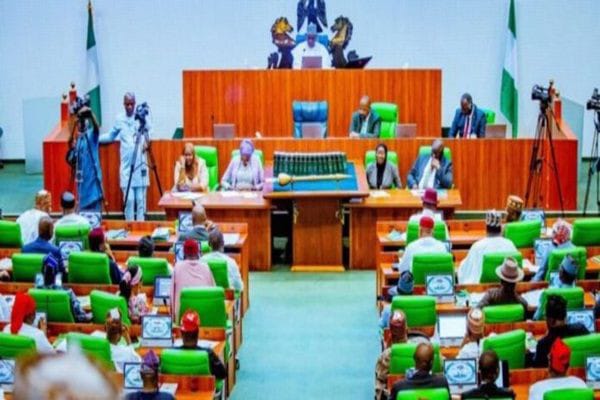In a major development from the National Assembly, the House of Representatives has rejected a proposed constitutional amendment bill seeking to implement rotational presidency across Nigeria’s six geopolitical zones.
The controversial bill, championed by Deputy Speaker Benjamin Okezie Kalu, aimed to formalize the rotation of the presidency and vice presidency among the North Central, North East, North West, South East, South South, and South West zones. However, during Tuesday’s plenary session, lawmakers overwhelmingly voted against the proposal.
Lawmakers Oppose Rotational Presidency
Opposition to the bill was led by Deputy Minority Leader Aliyu Madaki, who argued that the Federal Character principle already ensures inclusivity and representation. He stressed that such political zoning should remain a party-level decision, not a constitutional mandate.
Rep. Shina Oyedeji (PDP, Oyo) raised concerns that implementing a zoning system could spark new waves of ethnic and regional agitation over which state deserves the presidency. Similarly, Sada Soli (APC, Katsina) questioned the impact of rotation on leadership quality and national interest.
INEC’s Powers to Register Political Parties Remain Untouched
Another rejected bill sought to strip the Independent National Electoral Commission (INEC) of its authority to register and regulate political parties. The proposed change, co-sponsored by House Speaker Abbas Tajudeen and Francis Waive, wanted to transfer those powers to a new Office of the Registrar-General of Political Parties.
The bill was shot down after a voice vote conducted by Deputy Speaker Benjamin Kalu, who presided over the session.
Other Constitutional Bills Rejected
- The House also dismissed several other bills, including:
- A proposal to create the Ughelli East Local Government Area in Delta State.
- A bill to establish independent State Auditors-General for Local Governments and FCT Area Councils.
- A bill to increase the number of Federal High Court judges to at least 100.
- An amendment to expand the jurisdiction of the Federal High Court to cover admiralty, shipping, and navigation issues on the Niger and Benue Rivers.
A bill to empower the National Judicial Council (NJC) and the National Salaries, Incomes and Wages Commission to set judicial salaries and allowances.
Although some lawmakers supported the initiatives, the majority voted against them during the general voice vote.
HEED: Follow us on Instagram or any other social media platform and get the most reliable news directly in your favourite app!
Next Steps and Possible Reconsideration
Following the mass rejection, the Chairman of the House Committee on Rules and Business appealed for the bills to be reconsidered individually. However, Deputy Minority Leader Hon. Ali Jesse cited legislative rules that any such reversal must come via a formal motion on notice. The Speaker agreed and directed that the issue be listed on the next order paper.
Stay tuned to Naija Blog Daily for the latest updates on Nigerian politics, National Assembly news, and constitutional amendments.
NaijaBlogDaily# is visible on all social media platforms, and we bring you the latest Nigerian news on politics and economy, entertainment, and celebrity updates, including sports across Nigeria and beyond…
Keep visiting and following up with us on any social media platform you are using to keep you updated 💯
Remember (information brings knowledge and power).
STAY TUNED!!!



